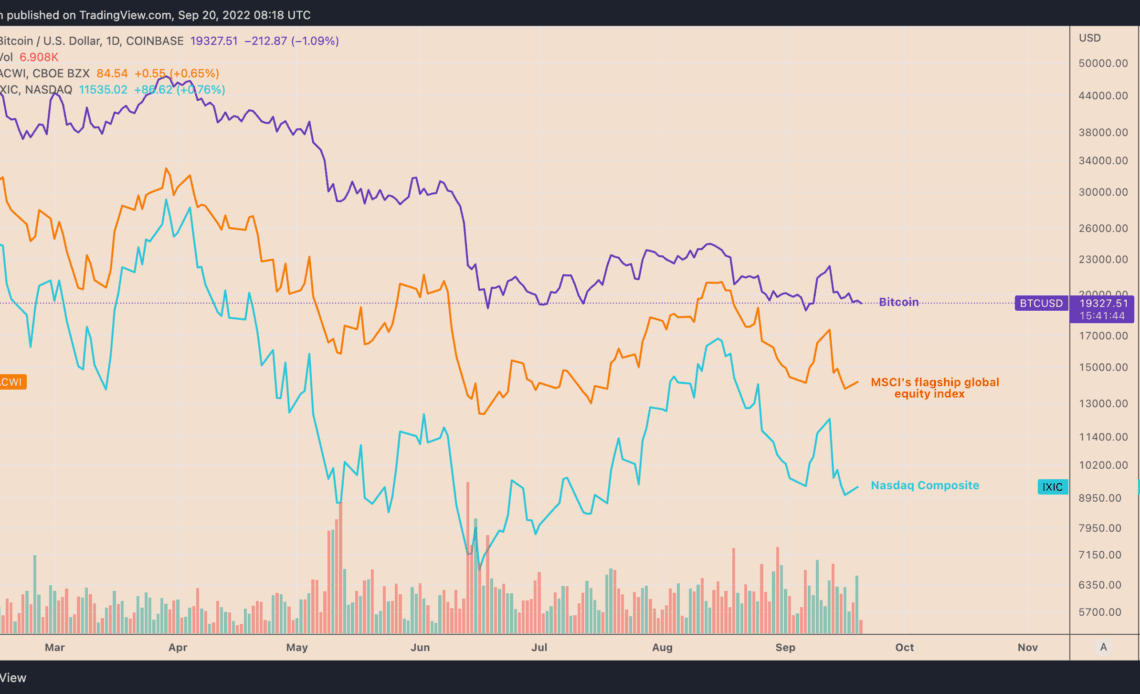Bitcoin (BTC) recovered above the $19,000 mark on Sep. 20, a day after falling to its lowest level in three months.
Bitcoin struggles after dropping below $20K
On the daily chart, the BTC price rose from $18,255 to $19,650. This 7.5% price rebound mirrored similar rebound moves witnessed in the stock market, suggesting that investors have been coming to terms with another significant rate hike by the Federal Reserve expected on Sep. 20-21.
However, opinions differ on the longevity of Bitcoin’s rebound. Independent market analyst Jonny Moe stressed that BTC’s ongoing price action is similar to its sideways consolidation moves at the beginning of this year.
In other words, Bitcoin’s current price rebounds around the $20,000 mark do not make a long-term bull case.
This is definitely still lurking out there $BTC pic.twitter.com/UkJ4s312zS
— Jonny Moe (@JonnyMoeTrades) September 19, 2022
Rudy Takala, former Fox News executive and opinion editor at Cointelegraph, also warns crypto traders to prepare for more “dark times” due to worsening economic conditions globally.
On the other hand, some analysts believe Bitcoin is staring at a strong bullish reversal in the times ahead. Let’s take a closer look at the three optimistic market outlooks.
Bitcoin prints “bullish hammer”
Bitcoin’s Sep. 20 candlestick is a bullish hammer, which suggests weakening downside momentum, according to pseudonymous analyst Trader Tardigrade.
A bullish hammer candlestick forms when the asset drops significantly lower from its opening value but recovers to close near the same level. Traders see the hammer as a sign of bearish rejection, given its history of preceding market bottoms.
Trader Tardigrade applies the same theory to Bitcoin’s recovery move on Sep. 20, noting that its bullish hammer may usher in a reversal.
#Bitcoin updates:
On daily chart, a “BULLISH HAMMER” candle was printed, which may bring us a reversal.
BULLISH Characteristics:
❇️ Long lower wick
❇️ White candle
❇️ Low below previous swing lowThis indicates a strong price rejection below the candle.#BTC #Cryptos pic.twitter.com/8TkfoegZrb
— Trader Tardigrade (@TATrader_Alan) September 20, 2022
Pi-Cycle bottom
Another technical signal that anticipates Bitcoin to rebound sharply is the Pi-Cycle bottom.
Specifically, the open-source indicator tracks two long-term simple moving averages (SMA): the 471-day SMA and the 150-day EMA. History shows that…
Click Here to Read the Full Original Article at Cointelegraph.com News…
























